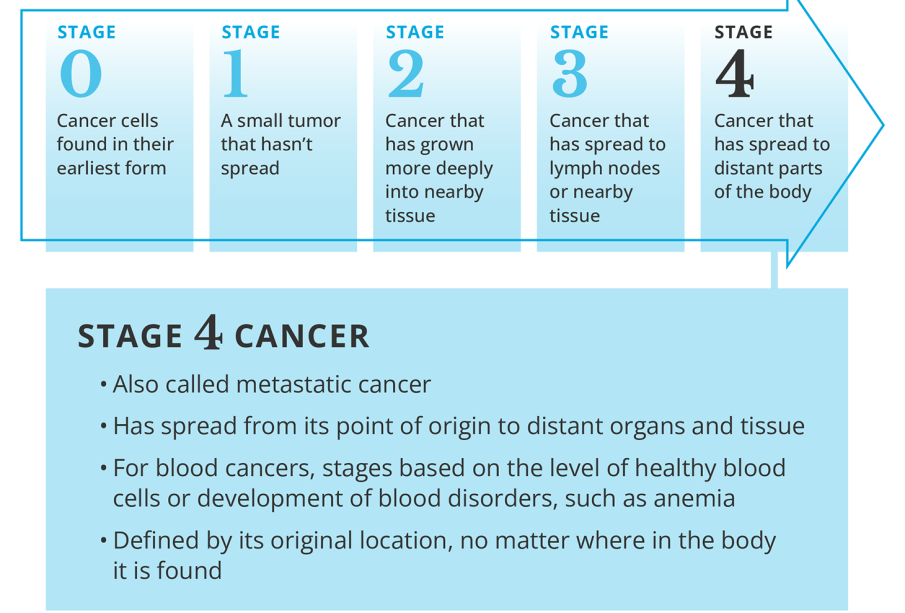Navigating the Challenges of Stage 4 Cancer

Introduction
Stage 4 cancer, often referred to as metastatic cancer, marks the advanced stage of the disease where the cancer has spread beyond its original site to other parts of the body. Understanding stage 4 cancer is crucial for patients, families, and healthcare providers as it significantly impacts treatment decisions, survival rates, and overall quality of life.
Current Statistics on Stage 4 Cancer
Data from Cancer Research UK highlights that approximately 45% of people diagnosed with cancer in the UK each year present with advanced disease. The stage at diagnosis is one of the critical factors influencing treatment options and outcomes. According to the National Cancer Institute, the five-year survival rate for stage 4 cancer varies dramatically depending on the type of cancer, but often is significantly lower than for earlier stages. For example, breast cancer at stage 4 has a survival rate of about 27%, whereas prostate cancer at the same stage can have a survival rate near 30%.
Treatment Options
Treatment for stage 4 cancer typically aims at prolonging life and alleviating symptoms. It may include a combination of chemotherapy, targeted therapy, immunotherapy, and radiation treatment, depending on the cancer type and its characteristics. Recent advancements in personalized medicine have enhanced treatment effectiveness, offering hope to many patients. Clinical trials are also available, providing access to cutting-edge therapies that may not yet be widely available.
Living with Stage 4 Cancer
Patients diagnosed with stage 4 cancer often experience a wide array of emotions, including fear, confusion, and uncertainty about their future. Support networks, including family, friends, and healthcare providers, are essential in providing emotional and psychological support. Many patients benefit from palliative care, which focuses on relieving symptoms and improving the quality of life, regardless of the stage of the disease.
Conclusion
In summary, stage 4 cancer represents a critical phase in the battle against cancer, with significant implications for treatment options and patient prognosis. Awareness of the latest research, treatment methods, and support resources is vital for patients and their loved ones facing this challenging diagnosis. Ongoing studies continue to provide hope, and advancements in cancer treatment could improve outcomes for those diagnosed with stage 4 disease. As ongoing research sheds light on innovative therapies, patients and families are urged to stay informed and remain hopeful.









